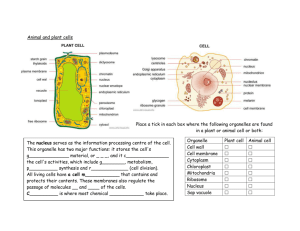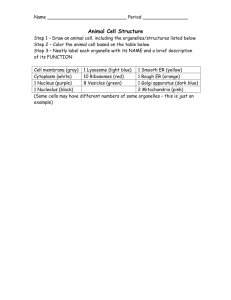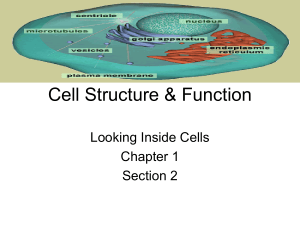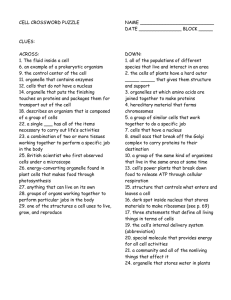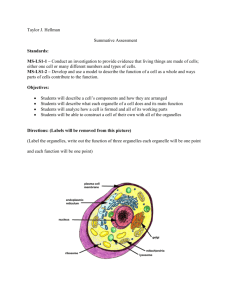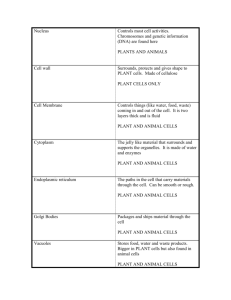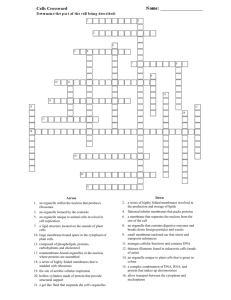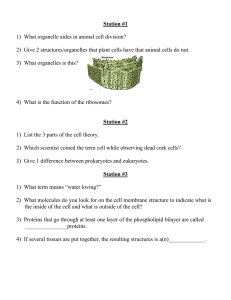Cell Organelle Review Name the Cell Part Name:
advertisement
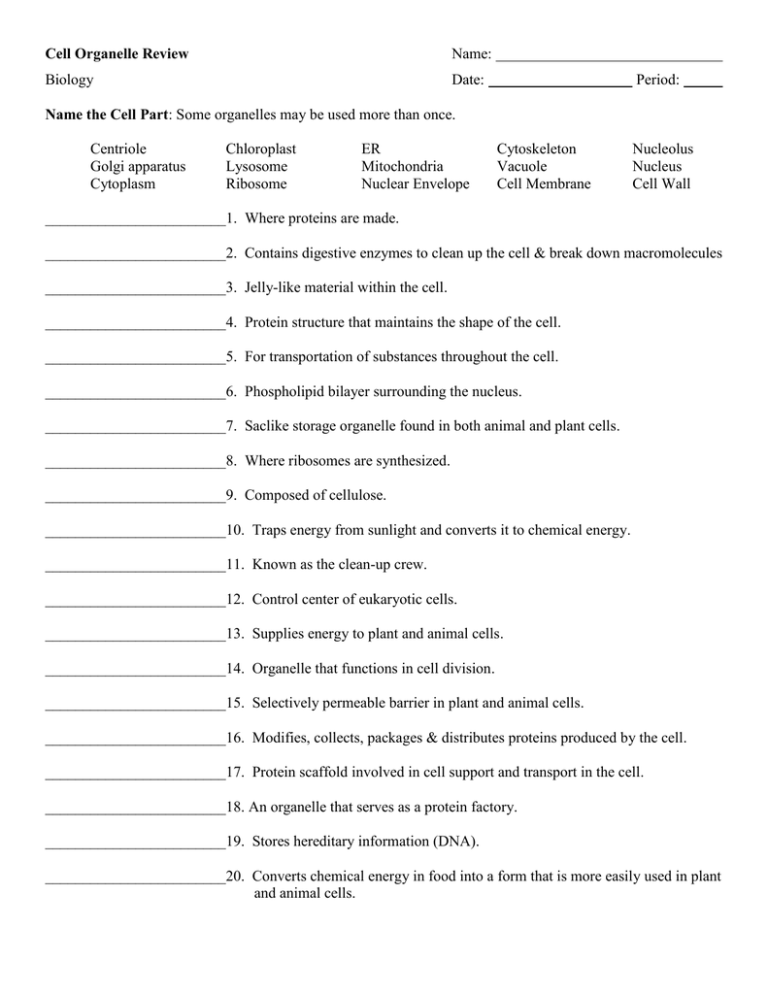
Cell Organelle Review Name: Biology Date: Period: Name the Cell Part: Some organelles may be used more than once. Centriole Golgi apparatus Cytoplasm Chloroplast Lysosome Ribosome ER Mitochondria Nuclear Envelope Cytoskeleton Vacuole Cell Membrane Nucleolus Nucleus Cell Wall ________________________1. Where proteins are made. ________________________2. Contains digestive enzymes to clean up the cell & break down macromolecules ________________________3. Jelly-like material within the cell. ________________________4. Protein structure that maintains the shape of the cell. ________________________5. For transportation of substances throughout the cell. ________________________6. Phospholipid bilayer surrounding the nucleus. ________________________7. Saclike storage organelle found in both animal and plant cells. ________________________8. Where ribosomes are synthesized. ________________________9. Composed of cellulose. ________________________10. Traps energy from sunlight and converts it to chemical energy. ________________________11. Known as the clean-up crew. ________________________12. Control center of eukaryotic cells. ________________________13. Supplies energy to plant and animal cells. ________________________14. Organelle that functions in cell division. ________________________15. Selectively permeable barrier in plant and animal cells. ________________________16. Modifies, collects, packages & distributes proteins produced by the cell. ________________________17. Protein scaffold involved in cell support and transport in the cell. ________________________18. An organelle that serves as a protein factory. ________________________19. Stores hereditary information (DNA). ________________________20. Converts chemical energy in food into a form that is more easily used in plant and animal cells. Name two organelles that are only found in plant cells: 1. 2. Name an organelle that is only found in animal cells: Chapter Vocabulary Review For Questions 1–4, write True if the statement is true. If the statement is false, change the underlined word or words to make the statement true. 1. All cells are surrounded by a cell wall. 2. The flexible nature of a cell membrane results from its channel proteins. 3. Selectively permeable membranes allow only certain materials to pass through them. 4. Centrioles are found in animal cells. For Questions 5–11, match the organelle with its description. Organelle _____5. Ribosomes Description A. Convert energy from sunlight into chemical energy that is stored in food. _____6. Endoplasmic reticulum _____7. Golgi apparatus _____8. Lysosomes _____9. Vacuoles _____10. Chloroplasts _____11. Mitochondria B. Stack of membranes that modifies, sorts, and packages proteins and other materials for storage or release. C. Convert chemical energy stored in food into a form that can be easily used by the cell. D. Moves molecules from one part of the cell to another. E. Saclike structures that store materials. F. Small particles of RNA and protein on which proteins are assembled using instructions from DNA. G. Filled with enzymes used to break down carbohydrates into smaller molecules.
